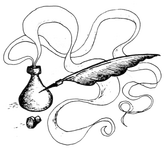The Green Sickness
Dear old and new friends,
I like Shakespeare’s epithet for envy: Green Sickness. Envy, like a cold or any sickness, can be mild; as in a desire to be like another person or the hard feelings of resentment toward an affluent neighbor with a yearly new flashy car. And Green Sickness can also be severe; like lusting, unwholesome rivalries in athletics, and old-fashioned greed. Part of our fascination with stars like Tom Cruise or Tina Turner is a secret green wish to be like them, a longing to have their physical talents. This envy towards others, be they stars, athletes or any perceived gifted person, exists because we only know the outside of their lives, not their hidden fears, phobias, physical or emotional disabilities. If we knew these we wouldn’t envy them!
Mahatma Gandhi was adored by India’s poor and lower castes as a saint for his austere lifestyle and spirituality. Gandhi the political leader was acclaimed for his unyielding peaceful non-violence against militant British rule and became a heroic example to be imitated. His many disciples loved him and longed to be like him, but the non-public Gandhi was not a man of peace! He lived deeply tormented by unshakeable feelings of guilt and unworthiness. The people called him a Mahatma, a “great soul,” when a better name would have been a “tormented soul”! The next time you feel the creeping Green Sickness to be like another, remember Gandhi.
Another example is Ira Hayes, a 22-year-old Pima Indian from Arizona, who was a U.S. Marine and Navy pharmacist…and how a World War II photograph ruined his life. Ira had been chosen to be one of a group of Marines to be photographed raising a large American flag on February 23, 1945, over the battle bloodied island of Iwo Jima. That classic photograph instantly became famous, making heroes out of its flag raisers. The propaganda hungry military sent these men touring the country where at each stop they were welcomed and praised as glorious heroes.
The Pima Indian Ira Hayes, like Mahatma Gandhi, felt inwardly unworthy of the adulation and praise cascaded on him. Ira’s Native American spirituality stressed modesty and humility, and denounced self-glorification. He told the press he wasn’t a hero; that the real heroes were his brother marines who had died sacrificing their lives in the intense fighting on Iwo Jima. But the praise continued and he suffered the piercing pains of personal embarrassment by being elevated to a heroic pinnacle, even though this was the dream ideal of all youth, including the Pima Indian young.
Embittered by his hidden inner turmoil, for relief he resorted to that ancient pain medicine…alcohol. Drifting now as an anonymous hobo from city to city he was arrested over 50 times for public drunkenness. On a bitter cold January 24th in 1955, returning to the Pima Indian reservation a drunken 32-year-old Ira Hayes stumbled into a ditch of water that served as the water supply for the reservation and froze to death.
To understand and be sympathetic about the shame that ate away at Ira Hayes let us go back to 1945 and to the facts of the raising of that large American flag over Iwo Jima. The first, original raising of the United States flag on Iwo Jima was not very picturesque. Simply two marines in muddy, battle-dirty fatigues reaching a hilltop and then sticking into the earth an old, twisted piece of pipe to which was attached a small American flag!
The second raising of the flag seen in that famous photograph known to all of us was spectacular but devoid of heroic action. The hilltop scene had been carefully staged with an appropriate wind to unfurl the large American flag. Those U.S. Marines positioned along the extended flag pole, including Ira Hayes, were carefully choreographed so as to appear that they were struggling to raise the victorious Stars and Stripes!
Every youth dreams of being a hero on the sports field or in war. When youth ends, that powerful dream continues to live on well into old age…so beware of what you dream about. The author of The Great Gatsby, Francis Scott Fitzgerald, said, “Show me a hero, and I will write you a tragedy.”


 RSS Feed
RSS Feed